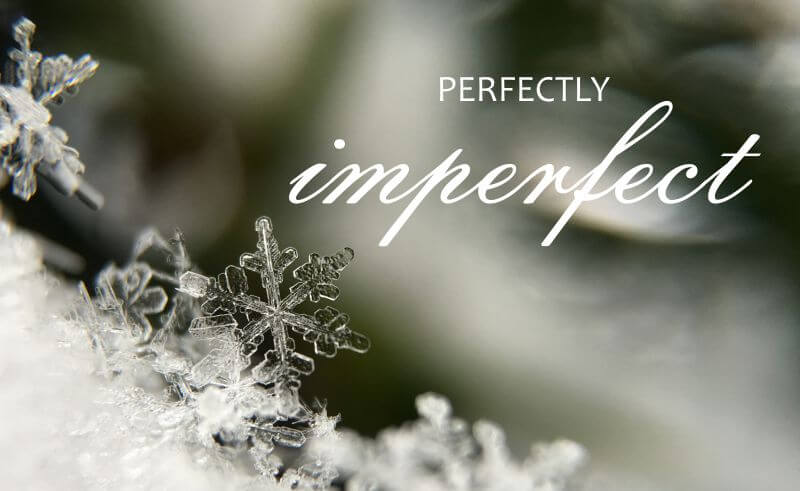Fortune Cookie Friday: Pobody’s Nerfect

Acceptance is the first step to recovery or change. It’s the main tenant in the 12 step process for Alcoholics Anonymous. It’s also the first step to becoming a better you.
Notice how I said, “better” and not “best.” Our journey through life should always be to improve ourselves, but we must understand that we will never reach perfection. Perfection is an abstraction of our minds, and we need to be careful about how we perceive it.
For example, we see airbrushed versions of perfection in media. Cover models have clear skin, white teeth, and “perfect bodies.” Who determines what a perfect body is? It certainly has changed over a hundred years. There is an interesting comparison of the “perfect” female body on Great.com. This same premise holds true for men.

When we’re born, parents are perfectly happy that we have ten fingers and ten toes. They don’t expect perfection because we are a work in progress, and we always will be.
Now let’s take a look at that work in progress. As we grow, we each develop our own particular set of skills and personalities. Why? Because we are individuals. We are unique. A world of all one type of person would be incredibly boring. If we were all perfect, there would be no diversity. There is no perfection in nature. If there were, there would be no growth or evolution. Perfection is stagnation.
OK, so nobody’s perfect. We all have flaws. Now what? Accepting our flaws can enable us to conquer them.
 First, we need to understand that just because we have flaws, we are not broken. We don’t need fixing. I’m not tall. I don’t have a law degree. I couldn’t run a marathon if a pack of hungry wolves were chasing me. I’m OK with those flaws, those imperfections. Guess what? I also can’t drive a stick shift, fly a plane, perform open heart surgery, and I don’t like cabbage. That doesn’t make me damaged. It makes me, me.
First, we need to understand that just because we have flaws, we are not broken. We don’t need fixing. I’m not tall. I don’t have a law degree. I couldn’t run a marathon if a pack of hungry wolves were chasing me. I’m OK with those flaws, those imperfections. Guess what? I also can’t drive a stick shift, fly a plane, perform open heart surgery, and I don’t like cabbage. That doesn’t make me damaged. It makes me, me.
We focus on our flaws and convince ourselves that we will never be good enough. We need to stop thinking that way. This thinking only leads to failure and depression.
Instead, we need to focus on who we are and what we can do. I may be short, but I never have issues with legroom on an airplane, and I don’t worry about blocking someone’s view at the movies. I may not know the ins and outs of every law on the books, but I do have a degree in Zoology and do a fair job at writing and illustrating. As for the marathon, I probably will never be able to run long distances without keeling over. However, I can hike long distances with a 40-pound pack on my back, and I enjoy it.
Can we improve ourselves and get rid of our flaws? Sure, but we need to do it for the right reason. We need to do it for ourselves and not for someone else. We should also recognize that some flaws may never go away. We can’t change some things.
I will always be short. Sure, I can wear high-heel shoes, but I can’t physically change my height. (Well, not without unnecessary, expensive, and painful surgery.) In fact, as I age, I will only get shorter. C’est la vie—that’s life.
For flaws that we can change, accept them and determine what we want to attain by an improvement. We can set the bar, just not at perfection. Remember we will never reach perfection. Perhaps we want to improve our habits, lose some weight, or learn a new skill. We can set a goal and work at it, even in small increments. We can only improve if we let our flaws be a guide, not a crutch.
Life is ever changing. As John C. Maxwell says, “change is inevitable, but growth is optional.” As we evolve and grow, we become better people. We are like rough diamonds. With a little cutting and polishing, we may not be flawless, but we can still sparkle. And each one of us is priceless.





